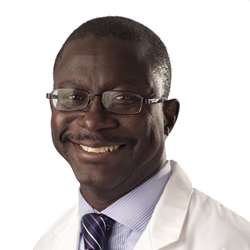The average life expectancy of a man born in the U.S. in 2007 is 75 years and five months. The ability to enjoy life to its fullest requires investing time and effort but pays dividends almost immediately, and it’s never too late to begin.

Our bodies are incredibly complex machines that require fuel (food, water, and air) to grow, function, and repair themselves. Like any machine, the body needs routine maintenance to make it last a long time and to function well throughout a person's life. Let’s be honest: Most men hate going to the doctor. But June is Men’s Health Month, so consider your loved ones — for their sakes, make sure your lifestyle is healthy and schedule a check-up.
Using the body as it was intended and minimizing abuse also increases its ability to perform. Our bodies suffer through illnesses and accidents, and many are unavoidable. Taking care of your body also includes scheduled maintenance and screening examinations to detect illnesses at an early stage, which increases the potential for cure and a return to health. Learning to listen to the body's warning signs and symptoms is the same as paying attention to the “check engine” light in your car — neither should be ignored.
A healthy lifestyle is not just an absence of disease but an opportunity to enjoy the years of life available to each person. Medical care can help the body maintain its performance as it ages. As the body ages, there is an expected and normal physiologic change in some of the hormones in the male body.
Most common diseases that affect men are potentially preventable. Interestingly, the presence of some diseases increases the chance that another will occur. Heart disease, stroke, peripheral vascular disease, and dementia all share the same risk factors, which include smoking, high blood pressure, high cholesterol, and family history.
A common condition in men that is part of the normal aging process is an enlarged prostate, making urination even more difficult. Symptoms of an enlarged prostate include urinating more often, the feeling that he has to empty the bladder urgently or risk wetting himself, and poor urine stream.
Heart disease is the No. 1 killer of men in the United States. The major risk factors for heart disease (and stroke and peripheral vascular disease) include smoking, high blood pressure, high cholesterol, diabetes, and family history.
Lung cancer is the No. 1 killer among cancers in men. Smoking causes 90 percent of all lung cancers, and while the number of smokers in the United States has decreased in the past generation, 20 percent of teenagers smoke and will be the future victims of lung cancer. Tobacco in its various forms, including smokeless or chewing tobacco, is related to a variety of other cancers including cancer of the mouth, throat, and larynx.
Prostate cancer affects the prostate gland. Prostate cancer is the most common cancer among men, and is a disease of aging and is rarely seen in men younger than 50 years of age. Often prostate cancer causes no symptoms and is diagnosed after a routine screening test. The cure rate for prostate cancer has increased but it still accounts for 10 percent of cancer deaths among men.
Colon and rectal cancers tie with prostate cancer as the second most common cause of cancer deaths in men. There are few symptoms in the early stages of colon and rectal cancers, so regular screenings are critical. Colon cancer can be nearly completely preventable with timely examinations.
Poorly controlled diabetes increases blood sugar levels in the bloodstream and over time affects the small blood vessels in the body, which can lead to multi-organ failure. Poorly controlled diabetes can cause vascular disease leading to heart attacks, strokes, limb amputations, kidney failure, blindness, and nerve damage (diabetic neuropathy). Be sure to eat a well-balanced diet, maintain a healthy weight, and exercise regularly.
This month, take yourself in for a tune-up. Resources are available from our Healthwise Knowledgebase at capitalhealth.com.
Adekunle Omotayo, MD, FRCP, is an Internal Medicine physician and is the Associate Medical Director at Capital Health Plan.